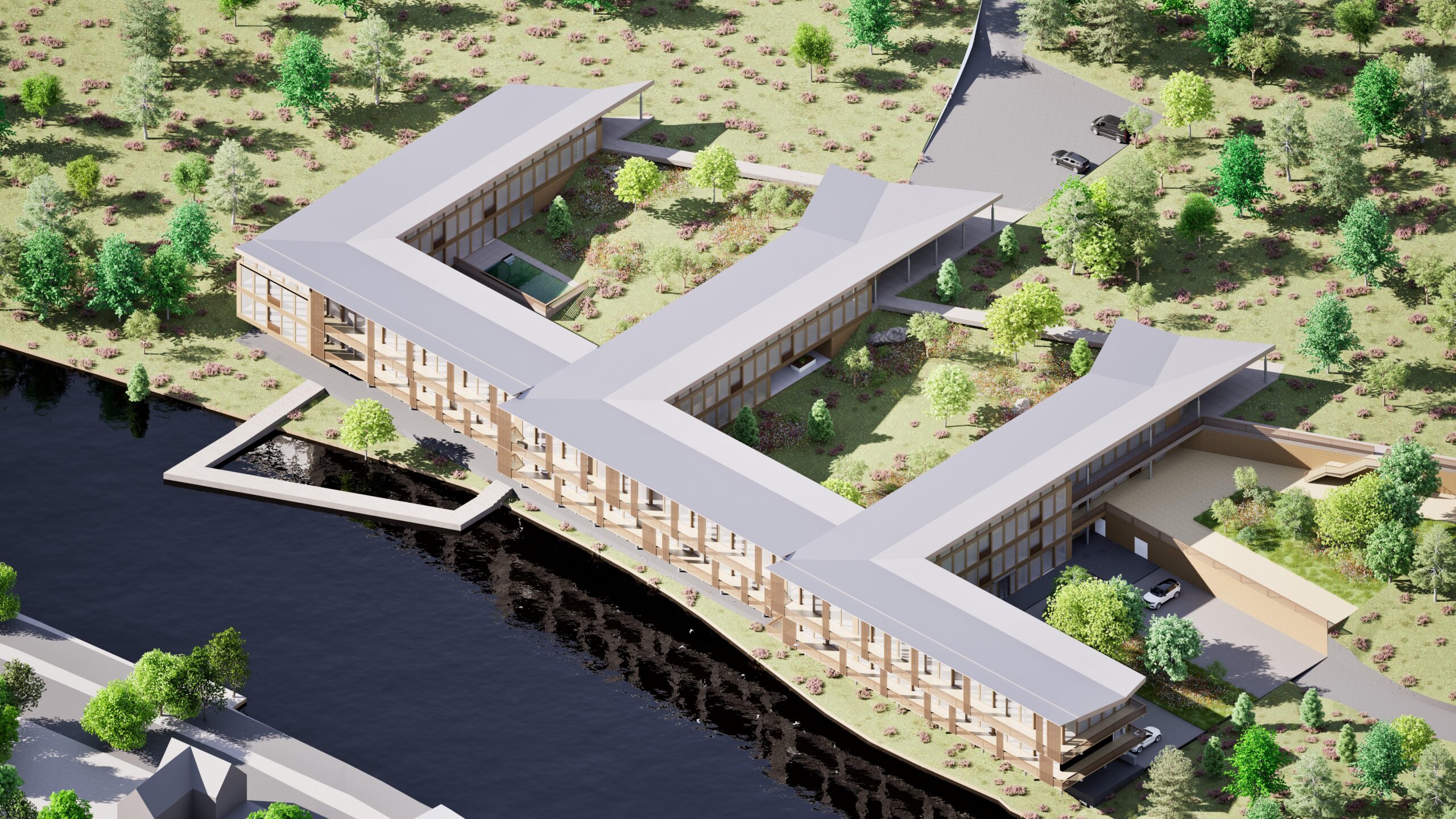This thesis began with the exploration of the role of biophilic design principles in shaping the holistic rehabilitation experience within architectural settings, particularly within the context of natural landscapes. Architects must consider how to create surroundings that promote patient healing.
This proposal explores how nature enhances patients’ sensory experience in healthcare settings by analysing the interaction between the body and architecture. Applying biophilic design to healthcare facilities creates pleasant and relaxing surroundings, positively impacting patients’ emotional states. Incorporating nature-based design into these environments enhances patients’ sensory experience and improves physical health, leading to further advantages. Effective rehabilitation facilities require architects to incorporate these beliefs into their designs.
Rehabilitation clinics and hospitals are beginning to recognise the value of promoting physical exercise via design. These surroundings enhance the benefits of exercise for patients’ health and encourage active participation in the healing process. Moving physical therapy from the walls to the halls and outside allows patients and staff to experience the entire facility via mobility, leading to more effective sessions.
In summary, Harmony Haven is not just a rehabilitation centre; it is a sanctuary for healing and renewal, where patients can reconnect with nature, nurture their mind, body, and spirit, and embark on a journey towards holistic wellness in harmony with the environment.
